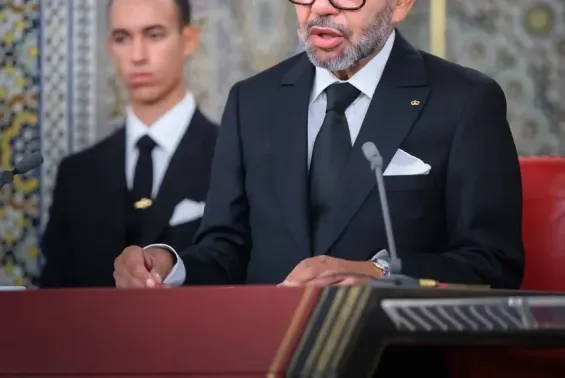
In a nationally televised address marking the 26th anniversary of his ascension to the throne, King Mohammed VI of Morocco outlined his vision for inclusive development while extending an olive branch to neighbouring Algeria.
Speaking on Throne Day, the monarch emphasized the need for territorial justice and renewed his commitment to the construction of a united Maghreb.
“There is no room, today or tomorrow, for a Morocco moving forward at two speeds,” he declared, calling for “a comprehensive upgrading of territorial spaces” and a stronger focus on human development.
The King announced the rollout of a new generation of regional development programs focused on four key areas: employment, basic social services, sustainable water management, and territorial integration.
These initiatives align with the country’s New Development Model, launched in 2021, aimed at fostering a competitive, inclusive economy.
Praising Morocco’s economic resilience, Mohammed VI highlighted a doubling of industrial exports since 2014, particularly in the automotive, aerospace, renewable energy, and agri-food sectors.
He stressed that despite geopolitical instability and climate-related challenges, the Kingdom has maintained robust economic momentum.
Socially, the King underlined the nation’s progress in reducing multidimensional poverty, which dropped from 11.9% in 2014 to 6.8% in 2024, placing Morocco among countries with “high human development” according to global standards. Yet he acknowledged persistent disparities, particularly in rural regions, urging accelerated efforts to correct spatial inequalities.
Turning to institutional reforms, the monarch instructed the government to complete revisions to the Electoral Code by the end of the year, ahead of the 2026 legislative elections. He called for “judicious, transparent and democratic” political consultations to ensure fair electoral processes.
On foreign policy, King Mohammed VI reiterated his dedication to fostering reconciliation with Algeria. “The Algerian people are a brotherly people,” he said, bound to Morocco by “language, religion, geography, and common destiny.” He urged a “frank, responsible, and sincere dialogue” to mend fractured relations between the two nations.
The King also applauded growing international support for Morocco’s autonomy plan for the Western Sahara, particularly welcoming endorsements from the United Kingdom and Portugal. He reaffirmed the proposal as the “one and only solution” within the framework of Moroccan sovereignty.
Concluding his address, the monarch paid tribute to Morocco’s security forces and national martyrs, anchoring his message in unity, patriotism, and spiritual values.



